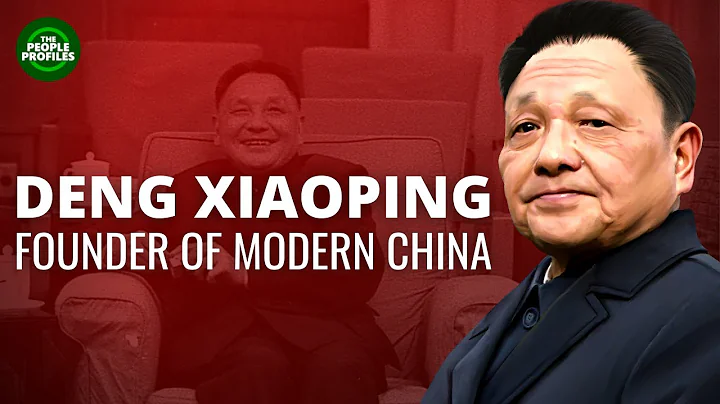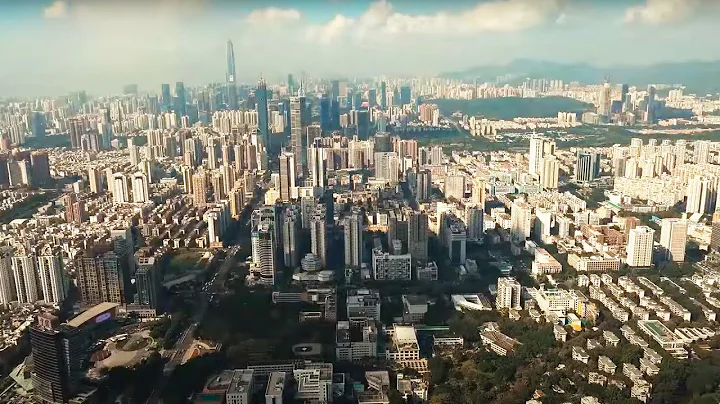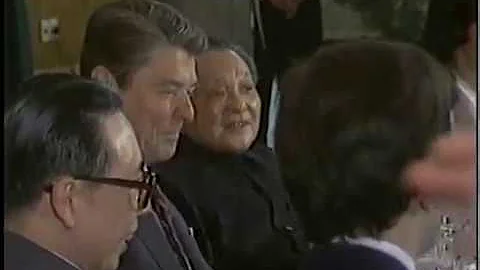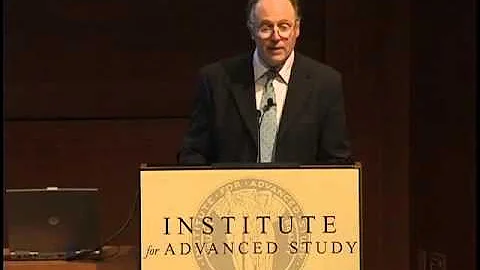In 1986, Deng Xiaoping accepted an exclusive interview with American journalist Mike Wallace, during which the sensitive topic of Taiwan was naturally discussed.
Wallace asked rudely: "Taiwan is much more developed than the mainland, so why is it necessary to unify with the mainland?"
Deng Xiaoping smiled and said: "Objectively speaking, there is indeed a gap between us and Taiwan, but this is Temporarily. Our development potential far exceeds that of Taiwan, and the distance between us and Taiwan is gradually narrowing. I believe that the development speed of mainland China will not be lower than that of Taiwan in at least a few years!"
Then, Deng Xiaoping continued: "And overall. In terms of economic aggregate, the mainland is actually much stronger than Taiwan. Therefore, from the perspective of Taiwan’s per capita income being higher than that of the mainland, it is only a matter of time before the mainland catches up with Taiwan. "
The future is just as Comrade Xiaoping said. , Taiwan, which was once the leader of Asia's "four little dragons", later fell into long-term economic stagnation, and was surpassed by the rapidly developing mainland provinces...

1. Visiting Suzhou to inspect the "moderately prosperous"
1983 2 This month's trip to Suzhou was Deng Xiaoping's first visit to Jiangsu since the reform and opening up.
Deng Xiaoping came to Suzhou ostensibly for a vacation, but actually he came to Suzhou, a relatively affluent area in Jiangsu Province, to see whether the people's lives had changed and whether the goals of "moderately prosperous" and "quadrupling" were Is it realistic and can it be achieved?
After listening to the report of the leading comrades of Jiangsu Province, Deng Xiaoping asked straight to the point: "By the year 2000, can Jiangsu quadruple its GDP?"
"Since 1976, within 6 years, we have allowed the province's General Administration of Industry and Agriculture to The output value has doubled. If we continue at this rate, we are sure to achieve the goal of quadrupling by the end of this century," the comrades in the province replied.
"What about Suzhou? Does Suzhou have confidence?" Deng Xiaoping turned his attention to Dai Xinsi, Secretary of the Suzhou Prefectural Committee.
Dai Xinsi said with some pride: "According to the current level of development, we are not only able to achieve but also prepare to achieve the goal of quadrupling 5 years ahead of schedule, 10 years or 8 years ahead of schedule!"
As the secretary of the Suzhou Prefectural Committee, There is a reason for Dai Xinsi's confident answer. Suzhou's development level at that time was the highest in Jiangsu, and it can be called the epitome of Jiangsu's development.
After that, Dai Xinsi submitted 16 typical materials about Suzhou to Deng Xiaoping.
After reading this, Deng Xiaoping had a firm idea of the development of Suzhou.
Then, he nodded with satisfaction and said: "You are developing well. Only when the economy develops and the people become rich can the superiority of our system be truly reflected."

During the conversation, the leaders of Jiangsu Province and Suzhou City This is the first time that comrades have heard a discussion on the relationship between socialism and market economy .
Deng Xiaoping explained to them: "The market economy is not unique to capitalism. We can also engage in a market economy."
Deng Xiaoping encouraged them to be free and active in developing the economy and not to be "capitalized" Or the issue of "surname society" tied their hands and feet.
The time of this report greatly exceeded the original plan. It was not until the staff came in for the second time to remind him that Deng Xiaoping came back from his excitement, but he still signaled for the conversation to continue.
When it got dark and the staff approached the reception room for the third time, Deng Xiaoping stood up with a smile to see the guests off and said, "Okay, that's all for today."
After returning to Beijing, Deng Xiaoping excitedly introduced Nanjing to the Central Committee What I saw and heard on the tour, and taking Suzhou as an example, describe the social situation after reaching a well-off society.
Deng Xiaoping pointed out in his talk:
Suzhou has now reached a per capita level of nearly 800 US dollars. At this level, the people's food, clothing, housing and employment problems have been basically solved. With basic life guaranteed, people will naturally stop leaving the country, and farmers will not always want to run to big cities. Also, I think they are capable of arranging education, culture and sports on their own. People's mental outlook has also changed, and the social atmosphere has also taken on a new look.

In other words, Deng Xiaoping’s vision of “quadrupling” and “moderately prosperous society” was first possible in Jiangsu and Suzhou.
This trip to Jiangsu provided important practical basis for Deng Xiaoping's "moderately prosperous society" theory and the future "three-step" strategic concept.
2. How will Jiangsu catch up with Taiwan?
In February 1985, Deng Xiaoping went south to inspect Jiangsu, Shanghai and Guangdong, paying attention to and discussing the further opening up of the Yangtze River and Pearl River Delta.
After arriving in Jiangsu, Deng Xiaoping began a four-day inspection here.
As soon as he arrived in Jiangsu, Mr. Deng asked Han Peixin, secretary of the Jiangsu Provincial Party Committee who was accompanying him: "How about catching up with Taiwan in 2000? Are you sure?"
At that time, Taiwan was advantageous in taking advantage of the transfer of Western industries overseas. Taking advantage of the opportunity, it vigorously introduces foreign investment, obtains technology through cooperation with local enterprises, and is committed to the industrialization and urbanization of the island while developing an export-oriented economy.
It can be said that at that time, Taiwan was in a stage of rapid development and a middle-to-high-income stage. It was known as one of the " Asian Tigers " and was the most economically developed region in China. No province in the mainland could keep up with its pace of development.
caught up with Taiwan. The weight of this issue was too great. Han Peixin knew that he could not make an accurate assessment, so he said embarrassedly: "This issue involves too many aspects. Please allow us to go back and conduct thorough research and I will answer after discussion."
Deng Xiaoping nodded slightly to show his agreement.

The night he returned, Han Peixin and some of his staff reviewed a large amount of relevant information. He found that Taiwan's GDP was about 2.6 times that of Jiangsu, and its population was less than one-third of Jiangsu's.
Early the next morning, Deng Xiaoping visited Nanjing Yangtze River Bridge accompanied by everyone.
It has been almost ten years since he last came here, when he accompanied North Korean leader Kim Il Sung to visit here. After reviewing the scenery on the bridge with great interest, Deng Xiaoping turned around and asked Han Peixin beside him: "Do you have an answer to the question I asked you yesterday?"
Han Peixin stepped forward and gave a truthful report: "I saw that Taiwan is now In terms of economic aggregate, Jiangsu will have no problem catching up with Taiwan in the future. However, Jiangsu has more than 67 million people, while Taiwan has less than 20 million people. It will still be difficult to catch up with Taiwan in terms of per capita income. "
Deng Xiaoping listened. Then he smiled with satisfaction: "Then let's seek truth from facts!"
In fact, he himself knew the gap between Jiangsu and Taiwan. He just wanted to see whether local comrades had a serious, responsible and realistic attitude, and whether they were confident in future development.
Obviously, Han Peixin's attitude made him very satisfied.
Deng Xiaoping’s conclusion that Jiangsu’s economy has caught up with Taiwan’s has also become an inexhaustible driving force for Jiangsu’s development.

3. The last instructions left to Jiangsu
It was February 19, 1992 when Deng Xiaoping came to Jiangsu again.
At that time, he returned to Beijing by special train after completing his southern tour at the beginning of the New Year, stopping in Nanjing on the way.
The leaders of Jiangsu Province hurriedly waited at the station, preparing to wish Comrade Xiaoping a happy old age.
Deng Xiaoping smiled and said to them: "The year has passed!"
Afterwards, Deng Xiaoping walked with the provincial leaders and listened to their brief reports on the development of Jiangsu over the years.
After the report, Deng Xiaoping asked: "How much did Jiangsu's GDP increase last year compared with the previous year?"
Provincial Party Committee Secretary Shen Daren replied: "It increased by 6.3%."
"This number is too low! Jiangsu The conditions are relatively good, and the development should be faster than the national average. Now I am afraid of losing the opportunity, so I must seize the opportunity and develop faster." Deng Xiaoping was slightly dissatisfied, and then emphasized his tone.
Comrade Xiaoping's words made the leading comrades of Jiangsu Province aware of their responsibilities and gaps.
Today, Jiangsu occupies an important position in the national development pattern. If the development speed cannot be faster, the national development speed will be greatly restricted.
Only by accelerating development can Jiangsu make its due contribution to the overall development of the country.

On February 19, 1994, Deng Xiaoping once again took a special train to stop in Nanjing for a short time. This was also his last visit to Jiangsu.
In order to save time and convenience, Deng Xiaoping simply asked the leading comrades of Jiangsu Province to report the situation to him on a special train.
The newly appointed Secretary of the Provincial Party Committee Chen Huanyou reported excitedly: "Last time you told us that Jiangsu would exceed the national average speed. Now we have fulfilled your request, and our province's GDP has quadrupled seven years ahead of schedule. Goal!"
Then, he reported on the two major goals that Jiangsu will achieve by the end of this century: first, establish the basic framework of the socialist market economy within five years; second, achieve the third doubling in advance, so that Jiangsu We will comprehensively realize moderate prosperity on a county-by-county basis.
Deng Xiaoping was very happy to express his congratulations to the leading comrades of Jiangsu Province after hearing this.
Then, he said earnestly: "This opportunity is rare now. You must seize it. For more than 100 years since the Opium War, the Chinese people have been unable to hold their head high in the face of imperialism. You must support the masses." Mobilize enthusiasm and concentrate on construction."
When leaving, Deng Xiaoping was still worried. He repeatedly emphasized: "You should develop the economy as fast as you can. Don't argue about whether it is faster or slower. It is my responsibility not to argue. A great invention. "
This was his last profound instruction to the people of Jiangsu.

Although Deng Xiaoping later passed away, his constant concern and instructions for Jiangsu are a huge spiritual power that will always inspire Jiangsu to move forward.
In 2006, GuangdongGDP caught up with Taiwan for the first time and won the first place in the country, ending Taiwan's history of leading China's economy since the late Qing Dynasty.
Jiangsu ranks third, behind Taiwan.
In 2007, Jiangsu, which had been constantly catching up, finally caught up with Taiwan and ranked second in the country, realizing Deng Xiaoping's wish to catch up with Taiwan.
By 2019, Jiangsu’s total GDP will be more than twice that of Taiwan.
Although there is still a gap between Jiangsu and Taiwan in terms of per capita income, I believe that in the near future, it will be able to achieve all-round surpasses!





















